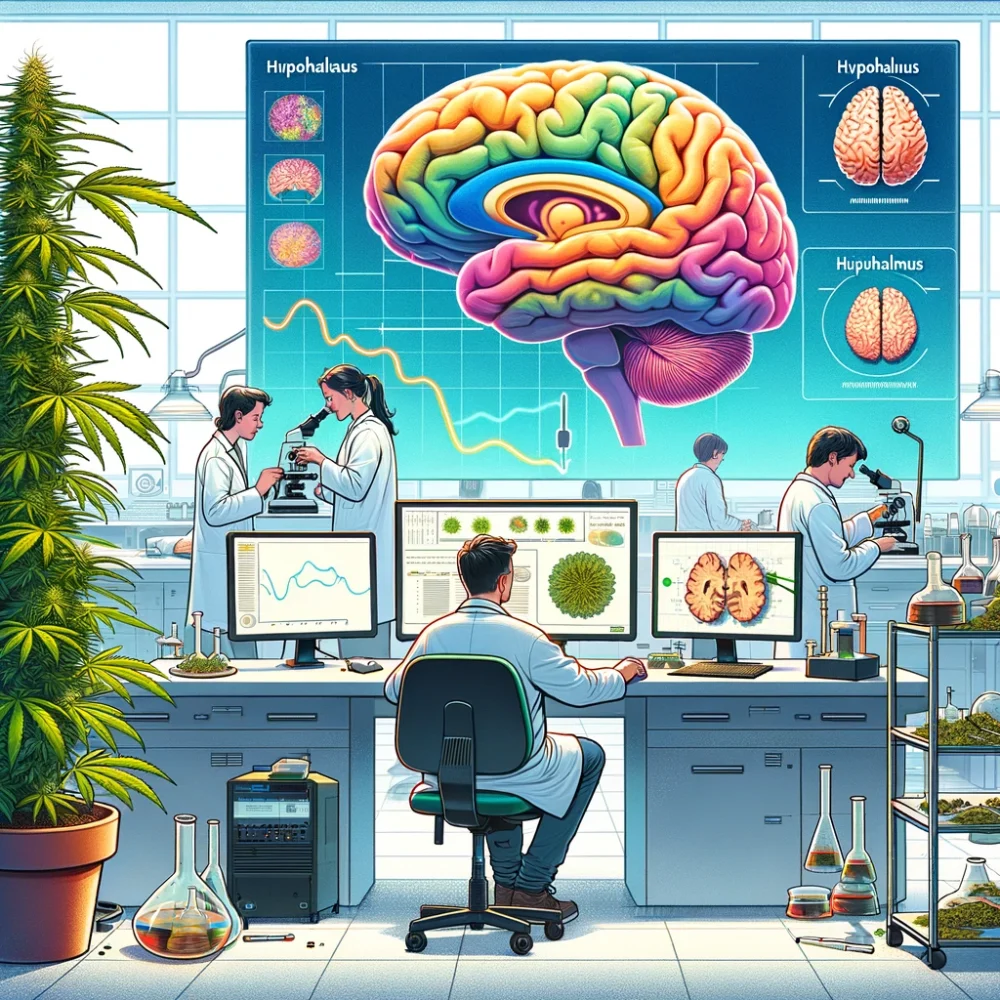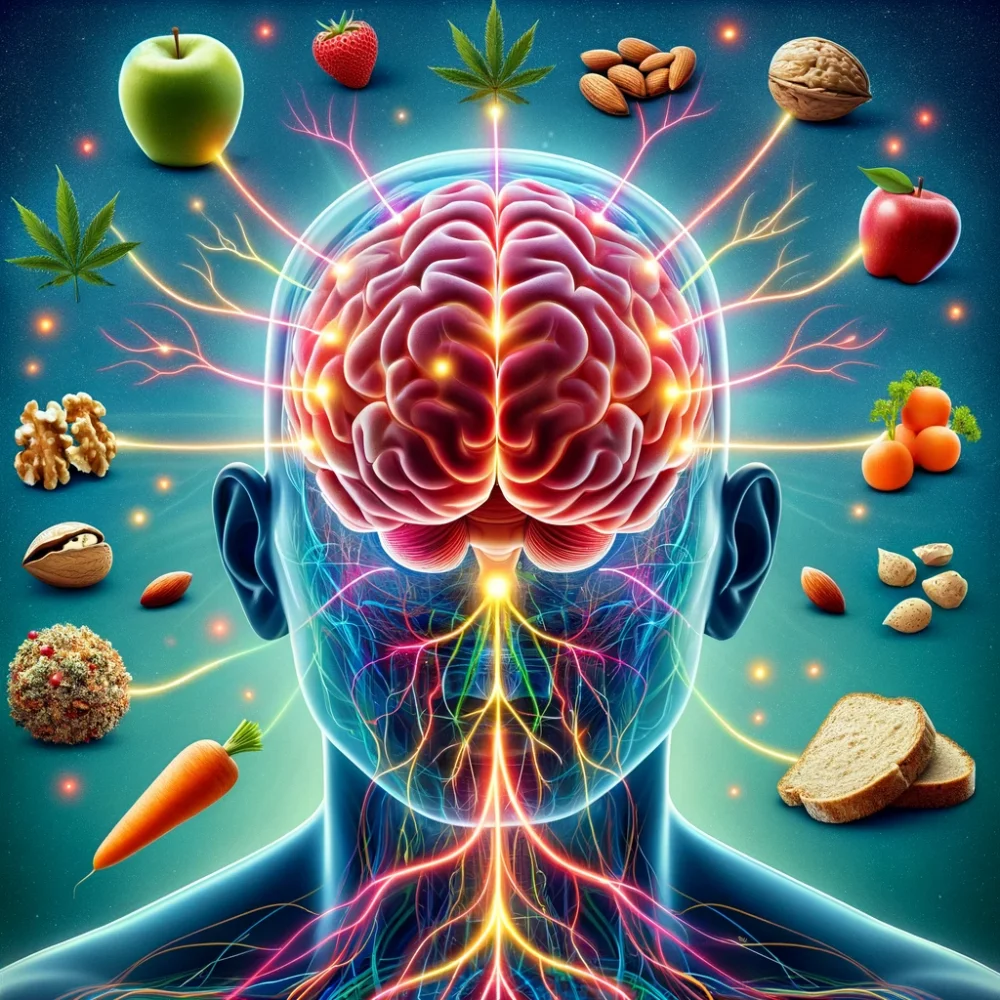A pioneering study at Washington State University (WSU) is looking at cannabis consumption and its appetite-stimulating effects, commonly called “munchies.” Researchers have shed light on the neural underpinnings of this phenomenon through this federally funded research endeavor, which also raises the possibility of therapeutic interventions targeting conditions such as anorexia and obesity. Scientists can march bravely into the uncharted wilderness of cannabis science and return with discoveries that enhance health, understanding, and the greater good.
The Science of Cannabis and “Munchies”
The phenomenon commonly referred to as “munchies,” characterized by individuals experiencing a sudden increase in appetite following cannabis use, has been an anecdotal staple among cannabis users for years. However, scientists have explored the physiological mechanisms at play to transcend folklore. As a result of this Washington State University study, we now have unprecedented insights into the brain’s response to marijuana. The study illuminated the intricate neurologic pathways governing hunger urges and how cannabis activates these appetite control centers.

This research has shed light on the complex neural circuits involved in appetite regulation, identifying specific pathways in the brain that are activated when cannabis is consumed. Marijuana’s active components, mainly THC, interact with the brain’s cannabinoid receptors, which are part of the endocannabinoid system. This system is crucial role in various bodily functions, including mood, memory, and appetite control.
The Washington State University study reveals how THC’s interaction with cannabinoid receptors in the hypothalamus, an area of the brain that regulates hunger and satiety, leads to the activation of neurons that signal the body to feel hungry, even if it was satiated before cannabis consumption.
The Hypothalamus is Connected to “Munchies”
Washington State University’s research has uncovered neurons within the hypothalamus, the brain’s hunger control center, that are activated by marijuana and trigger hunger signals that lead to the “munchies.” This key finding reveals the biological mechanism underlying how cannabis increases appetite and underscores the essential function of the hypothalamus in driving feeding behaviors.

By identifying the specific hypothalamic cells switched on by cannabis, WSU’s study represents a major advancement in delineating not only how pot stimulates appetite but also the critical importance of this brain region in regulating food intake overall. The hypothalamus is the essential gatekeeper governing eating urges, which provides clarity for the “munchies.”
This research highlights the nuanced relationship between cannabis and the body’s natural regulatory systems. By elucidating the specific neurologic pathways activated by THC, scientists demystify the biological basis of the “munchies” but also opens up potential therapeutic avenues.
Targeted Therapeutics
Researchers can explore ways of leveraging these pathways for therapeutic ends now that specific hypothalamic neurons activated by marijuana have been spotlighted at Washington State. It opens an exciting new frontier for developments that capitalize on cannabis’ hunger-stimulating properties. These discoveries can yield innovative treatments where appetite stimulation is desperately needed.

By exploring how these neural pathways can be intentionally manipulated, scientists have the potential to harness cannabis’ unique properties for therapeutic purposes. Such advancements could be particularly transformative in developing for treatments aimed at conditions where appetite enhancement is crucial. The ability to stimulate appetite in patients who need to maintain or increase their nutritional intake can significantly improve their overall health outcomes and quality of life.
Moreover, this new avenue of research opens up possibilities for creating more targeted and effective therapeutics with fewer side effects than current options. By focusing on the specific neurons involved in the appetite-stimulating effects of cannabis, treatments can be designed to minimize undesired psychoactive effects while maximizing therapeutic benefits. This precision in treatment approach not only enhances patient care but also broadens the acceptance and application of cannabis-derived therapeutics in mainstream medicine.
Washington State University Supporting The Future of Cannabis Science
The research from Washington State University ushers in a new era for cannabis research, an overly stigmatized aspect of the industry that is now receiving mainstream recognition and federal funding. More studies like this are needed to showcase marijuana’s therapeutic promise. It’s not about demystifying the munchies. It is just necessary to establish the inner workings of cannabis and its influence on the human brain. The WSU study marks a pivotal step in transitioning the understanding of cannabis-induced appetite changes from folklore to scientifically-backed knowledge.

As cannabis sheds its taboo image through groundbreaking discoveries about its health impacts, the research from Washington State University serves as a guiding star for the future of marijuana science. Federal backing for this study signals that science is ready to explore with open eyes and open minds how cannabis truly the affects body and brain. We stand at the edge of a new frontier where many of the plant’s mysteries await. As we continue to unlock the complexities of the human brain and its response to natural compounds like cannabis, the potential for innovative therapeutics that cater to specific medical needs grows exponentially.
Respect My Region has you covered on cannabis, culture, and more.








